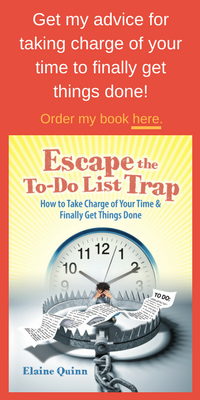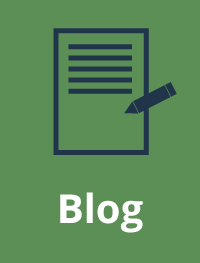You want to start a sure-fire gripe session? Just mention e-mail. People groan. They roll their eyes. They get too much. It takes all day to clear out their inbox. They can’t get “real” work done because they’re too tied up with e-mail. It’s the number one complaint among business owners.
For most of us, the real problem is how we use e-mail:
- We check it every few minutes, because we’re afraid we’ll miss something, or because we’re putting off something else we don’t feel like doing right now. But that’s a constant disruption to our other work, preventing us from getting up to cruising speed where we’re deep “in the zone,” being seriously productive.
- We respond immediately, because we’re happy to avoid doing that other thing, or because we want to look like we’re on the ball. The truth is, few messages are so urgent that they deserve top priority. If something’s on fire, someone will phone you about it, not send an e-mail. Responding immediately just trains other people to expect you’ll do that all the time. Then, when you don’t, they’ll interrupt you by calling to find out why you’re not answering their e-mail!
- We sign up for all kinds of newsletters that look interesting, and might, in fact, be worth reading if we had nothing else to do. But unless the content is immediately applicable to the work we’re doing, we usually don’t have time for non-essentials. So we leave them in our inbox to get to “later.”
- We use our e-mail inbox as a to-do list. We don’t decide when we will actually do what needs doing; we don’t put a task in the calendar and archive the message; we just repeatedly review the list of messages we’re not acting on. This is demoralizing, makes us feel overwhelmed, and doesn’t move the ball forward.
If you’d like to change how you feel about e-mail:
-
Manage e-mail strategically
- Tackle the most important one or two tasks of the day before you turn to e-mail, so you don’t get sidetracked from your “real” work.
- Turn off new mail alerts so you’re not constantly distracted and tempted to see what has just come in.
- Choose a few specific, limited blocks of time during the day to process e-mail.
- Immediately delete spam and other messages you know you’re not interested in.
- Skim sender and subject lines for messages from priority senders or with important content.
- Decide if, when, and how you reply to messages; you probably don’t need to respond to every single one.
- Use an e-mail address for online shopping and newsletter opt-ins that’s different from your regular business and personal/family e-mail addresses, so they don’t clutter up your primary in-box.
-
Use e-mail as a tool
- Arrange to have useful articles, news reports, etc. from around the Internet delivered automatically to your inbox using key word alerts.
- Subscribe only to e-newsletters, podcasts, etc. that routinely bring you valuable information; once they’re not so useful, unsubscribe.
- Create distribution lists for groups you often communicate with.
- Use e-mail to set up phone call appointments in advance, for times that are mutually convenient.
Make e-mail work for you
When used properly, e-mail can save time and be more convenient for you and the others with whom you communicate. Don’t let e-mail dictate your schedule or your workload; you decide when, how and to whom you respond. The key is to manage e-mail, just like you do every other aspect of your business.
Is e-mail driving you crazy? Click here and let’s chat about how I can help restore your sanity!








